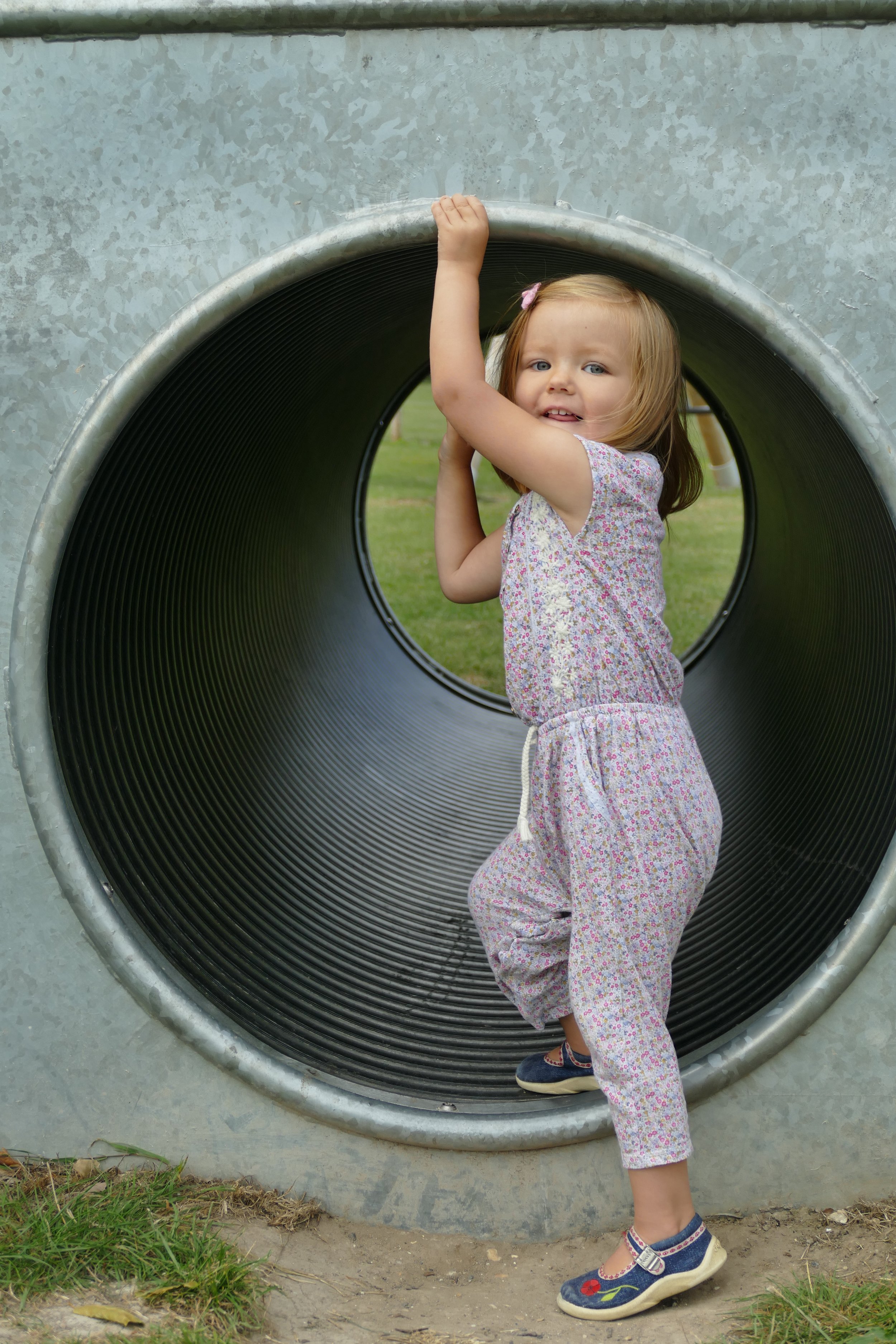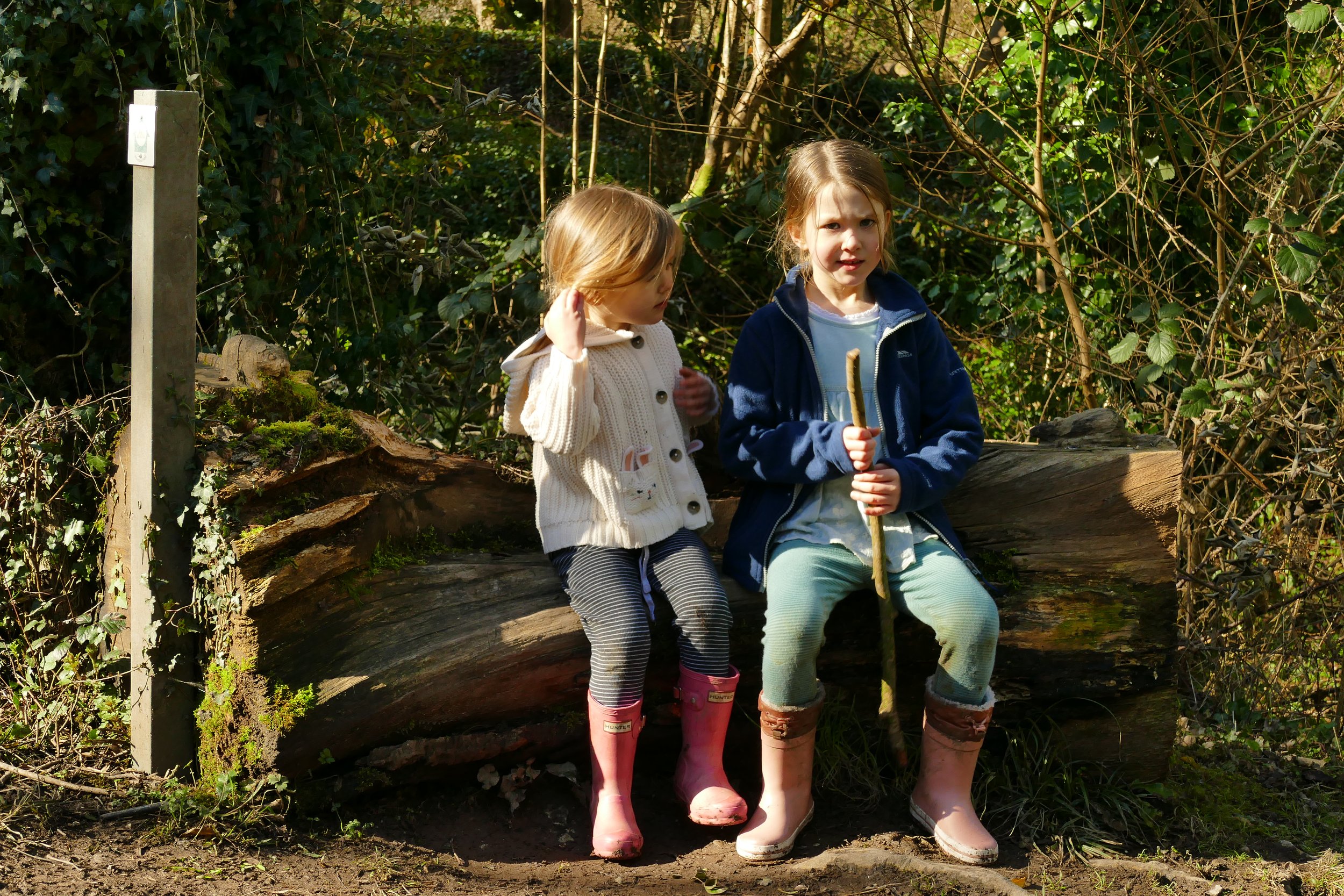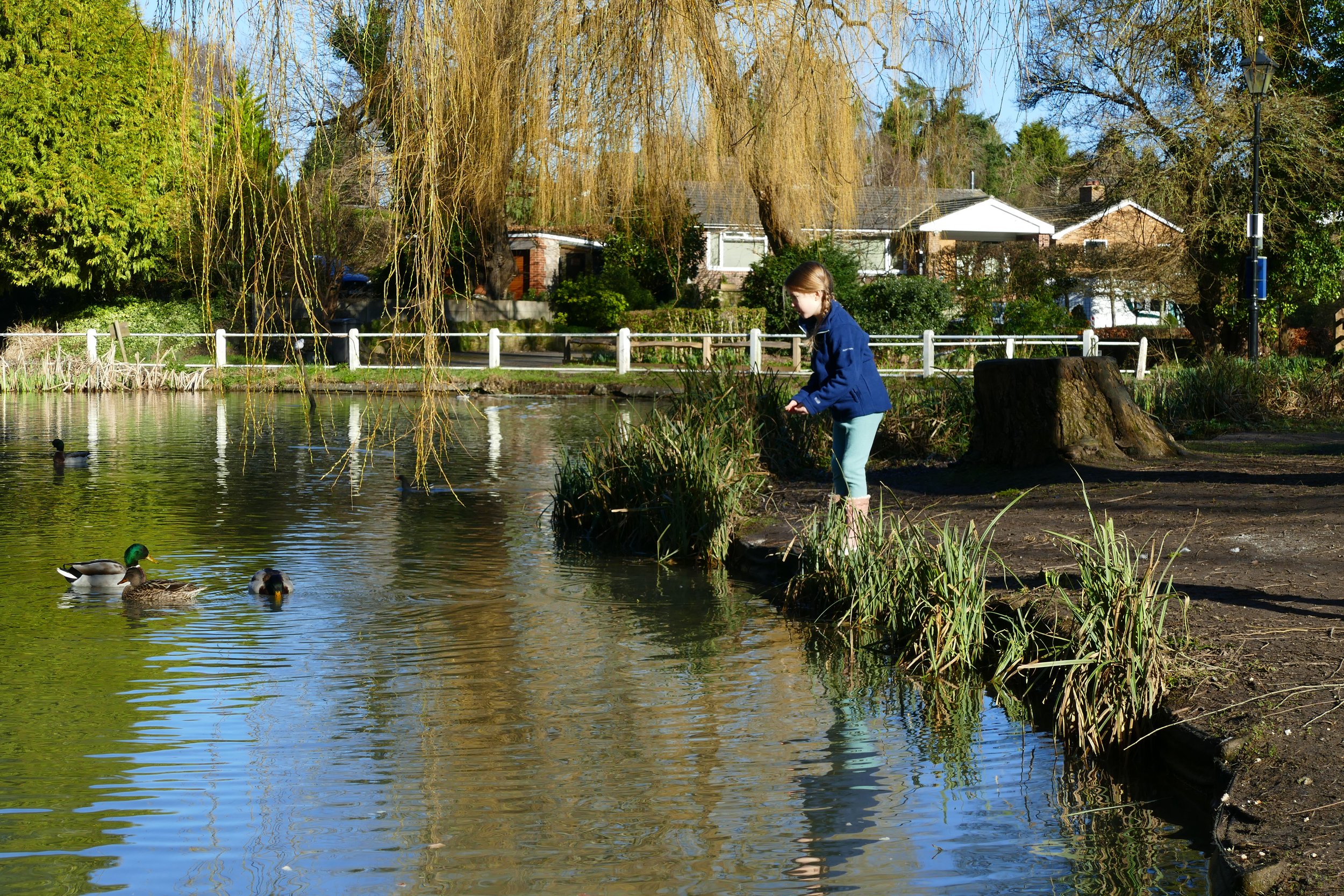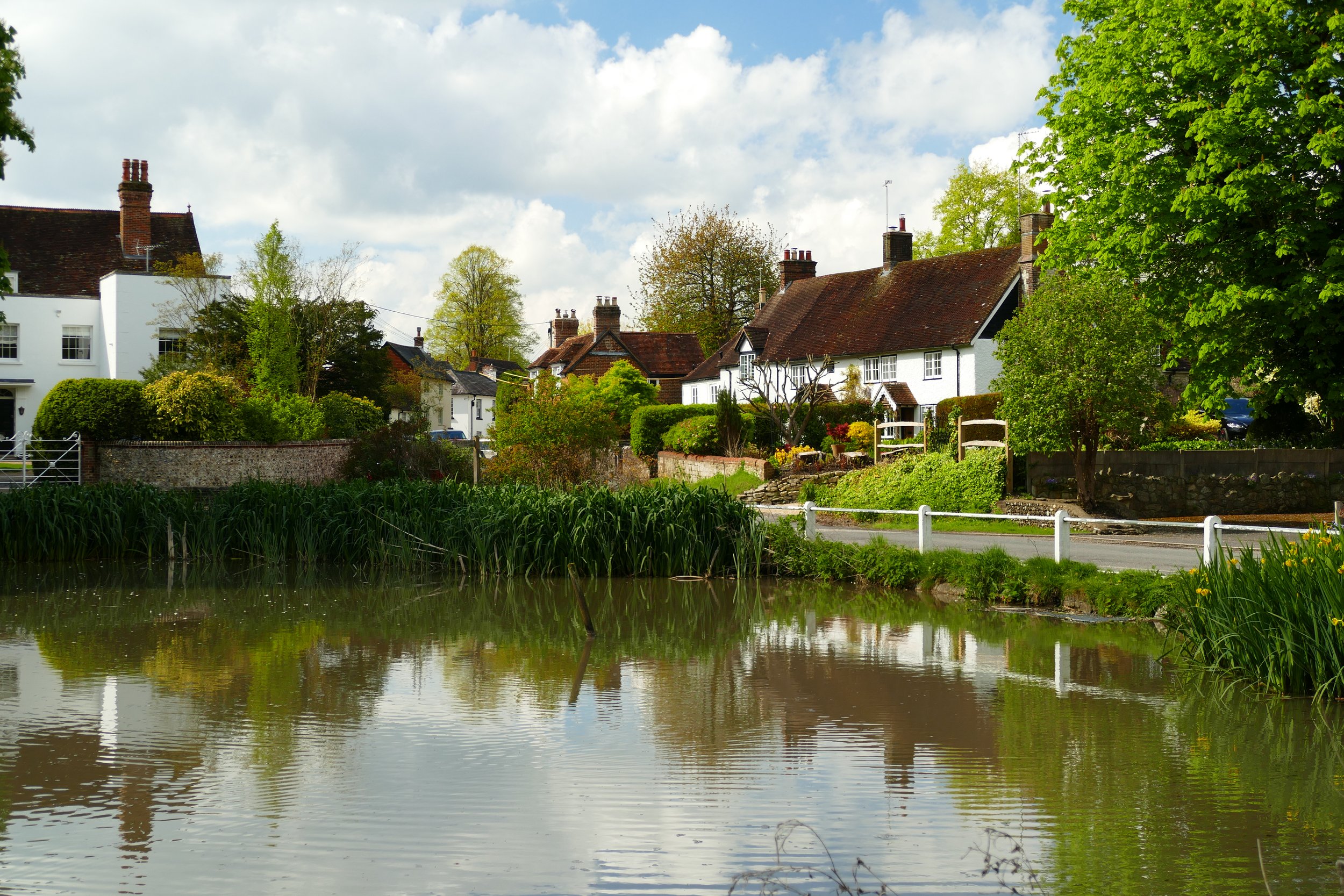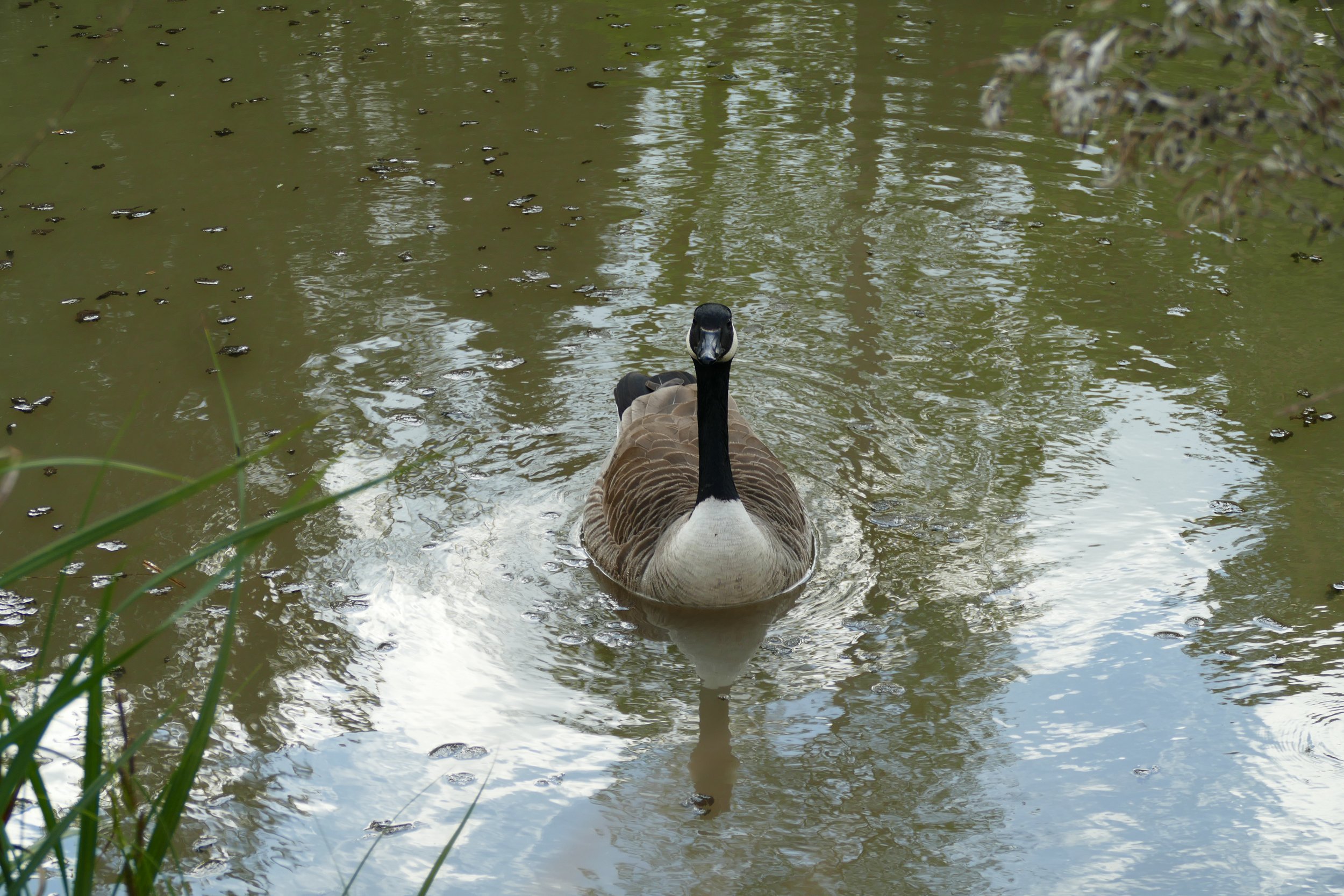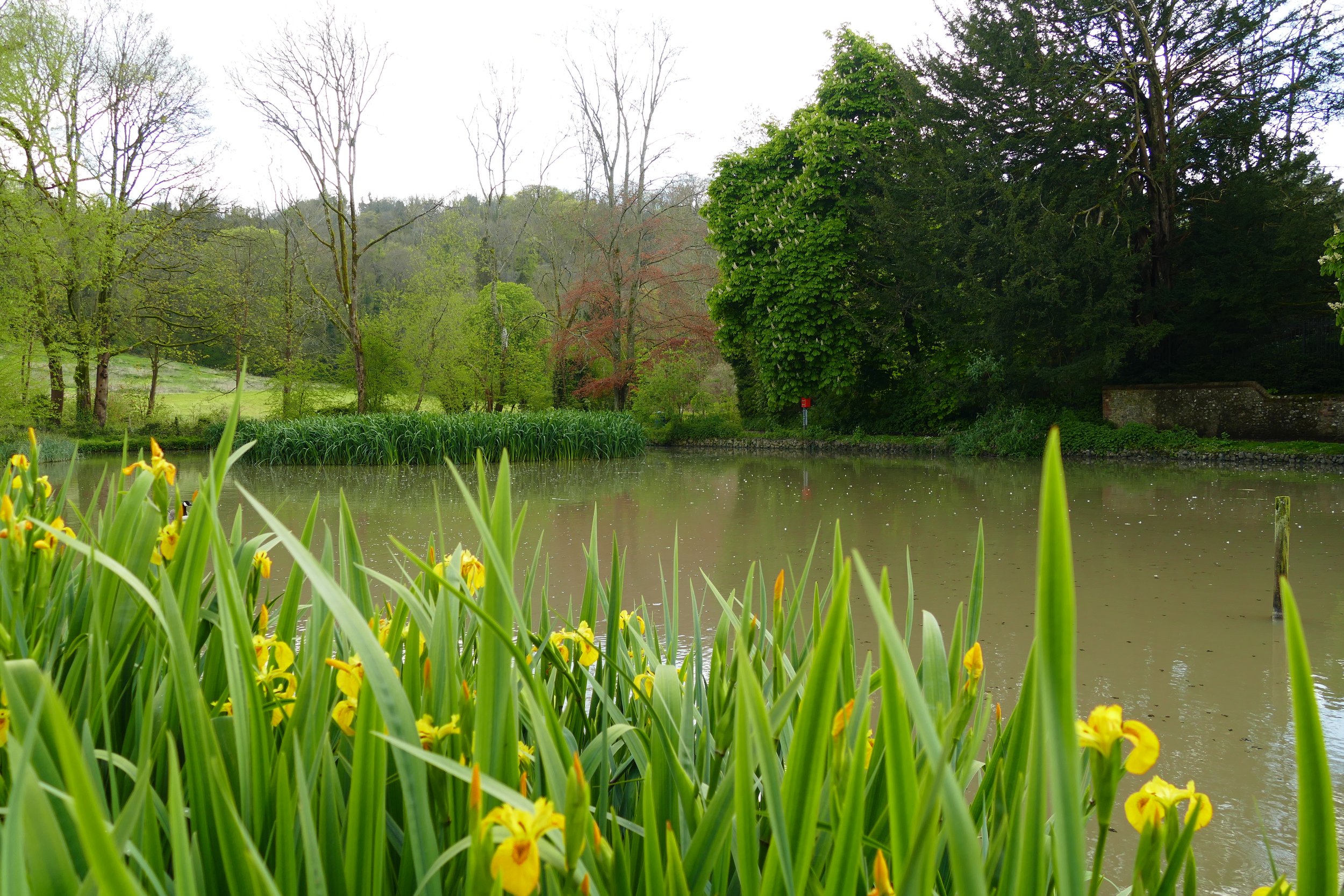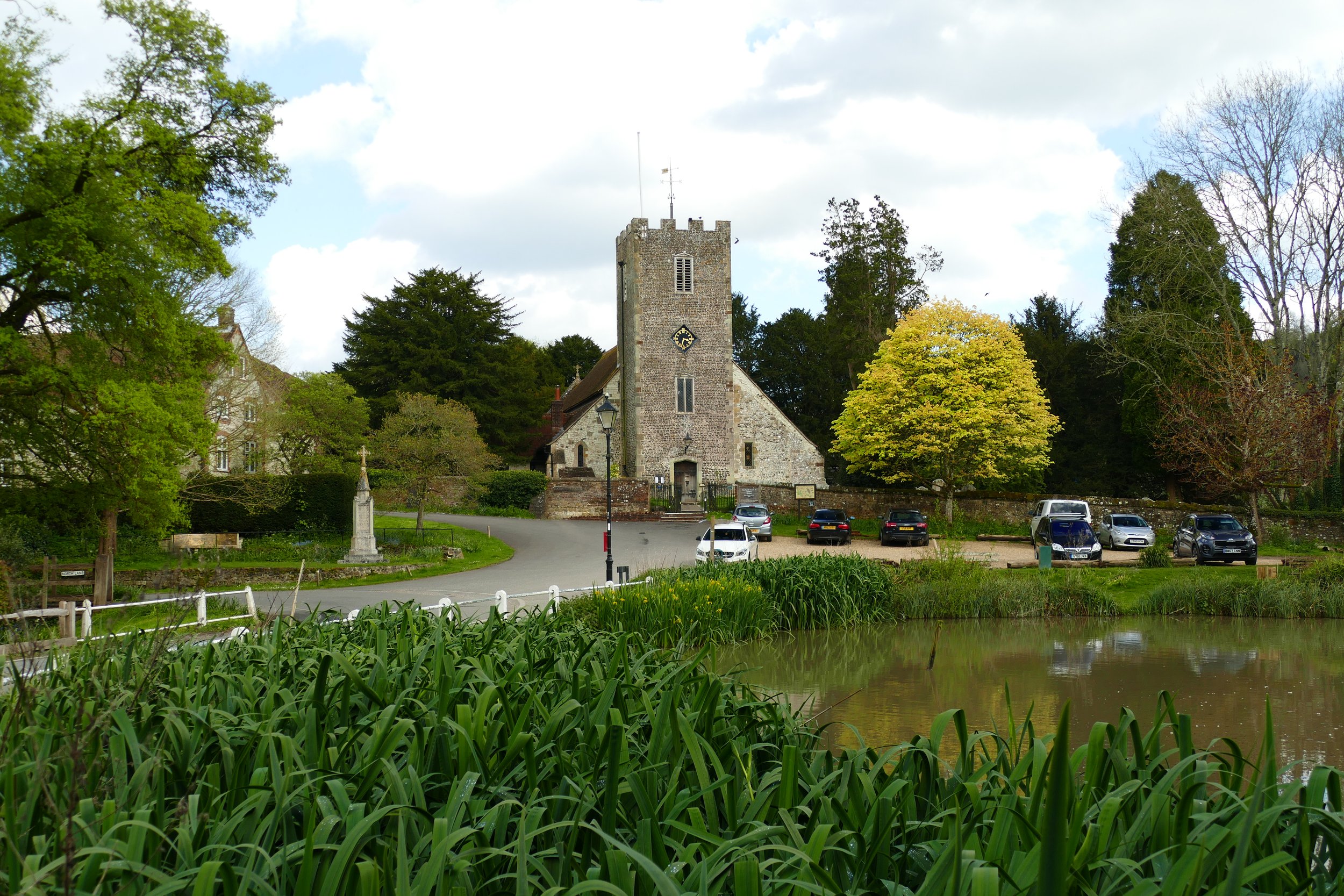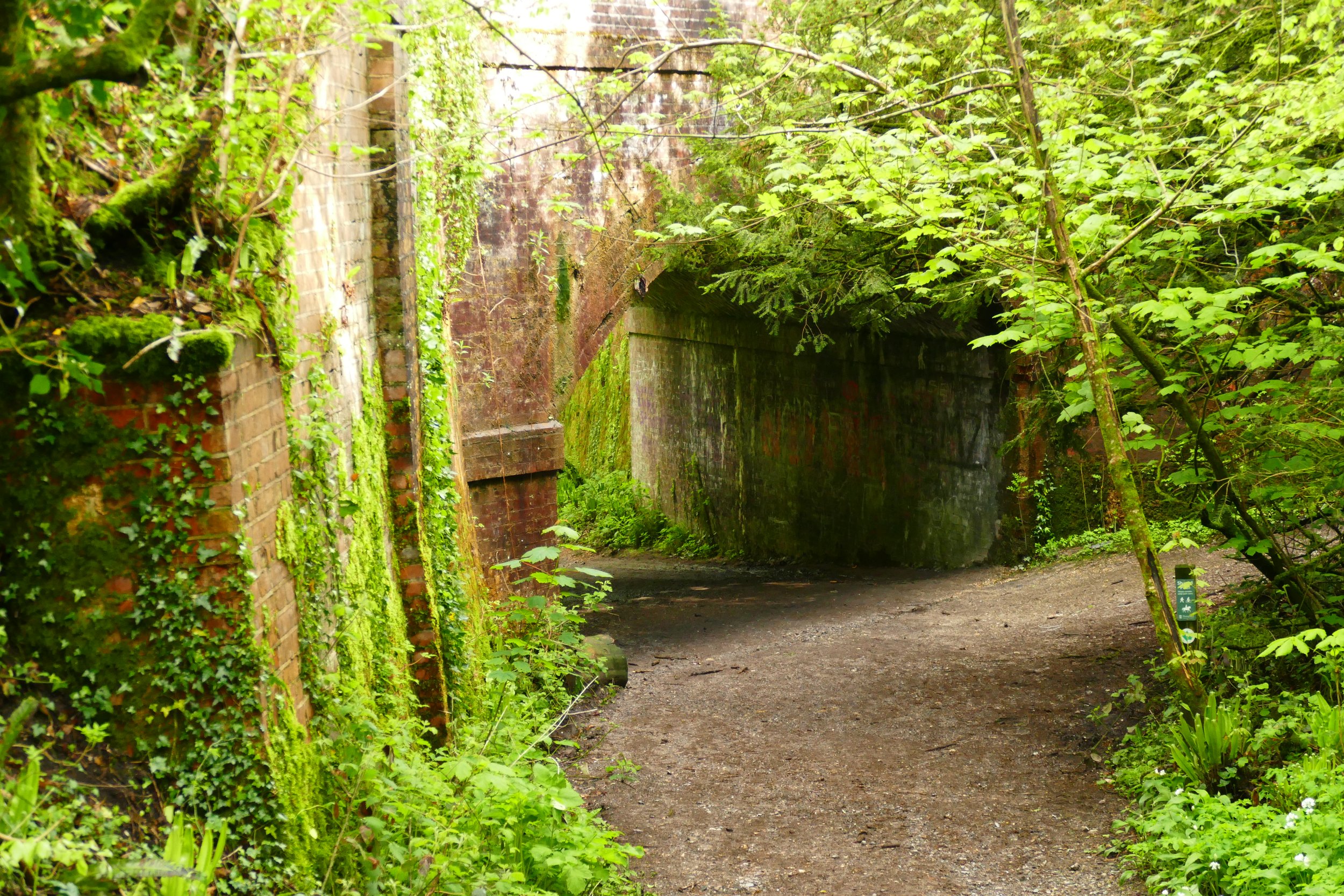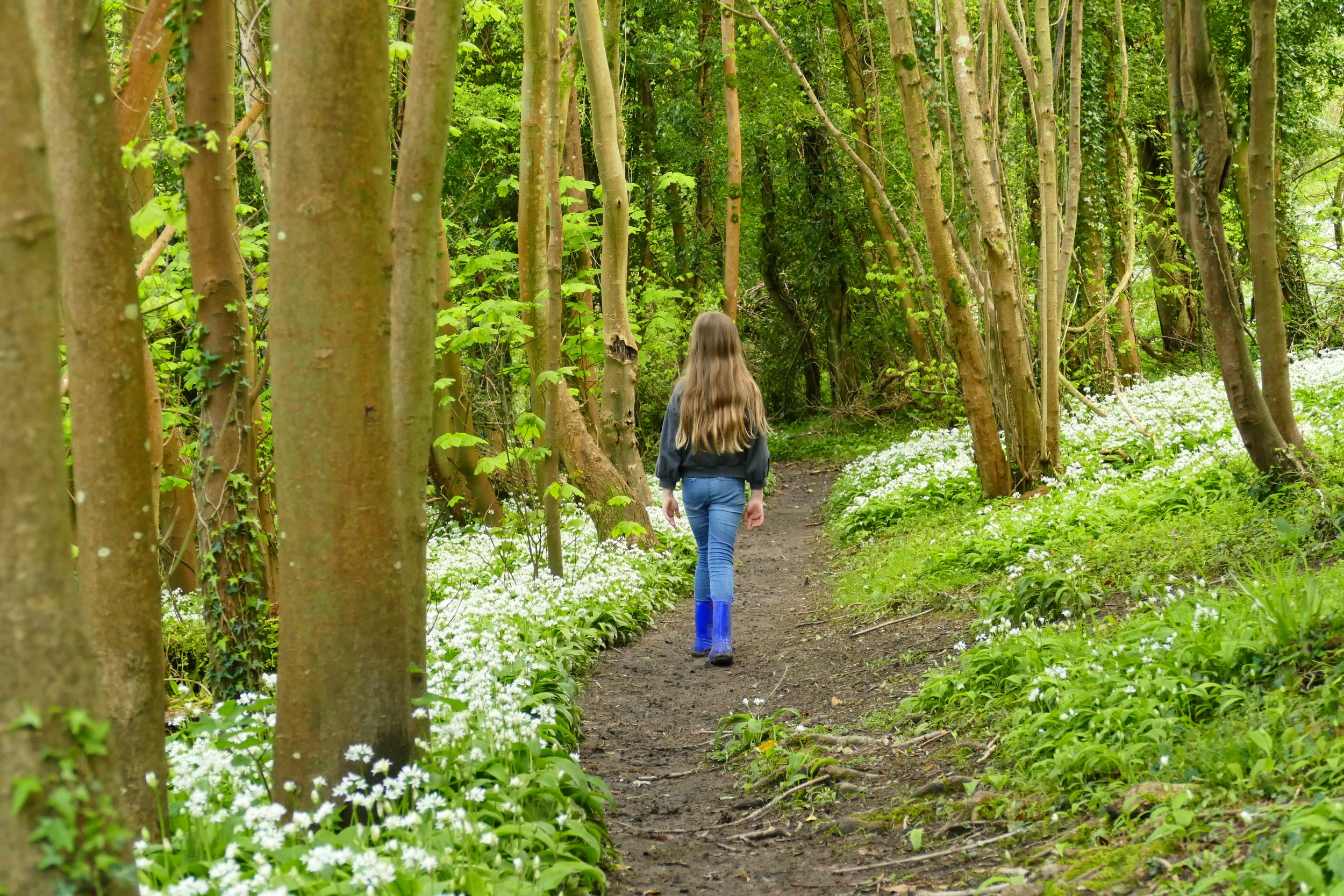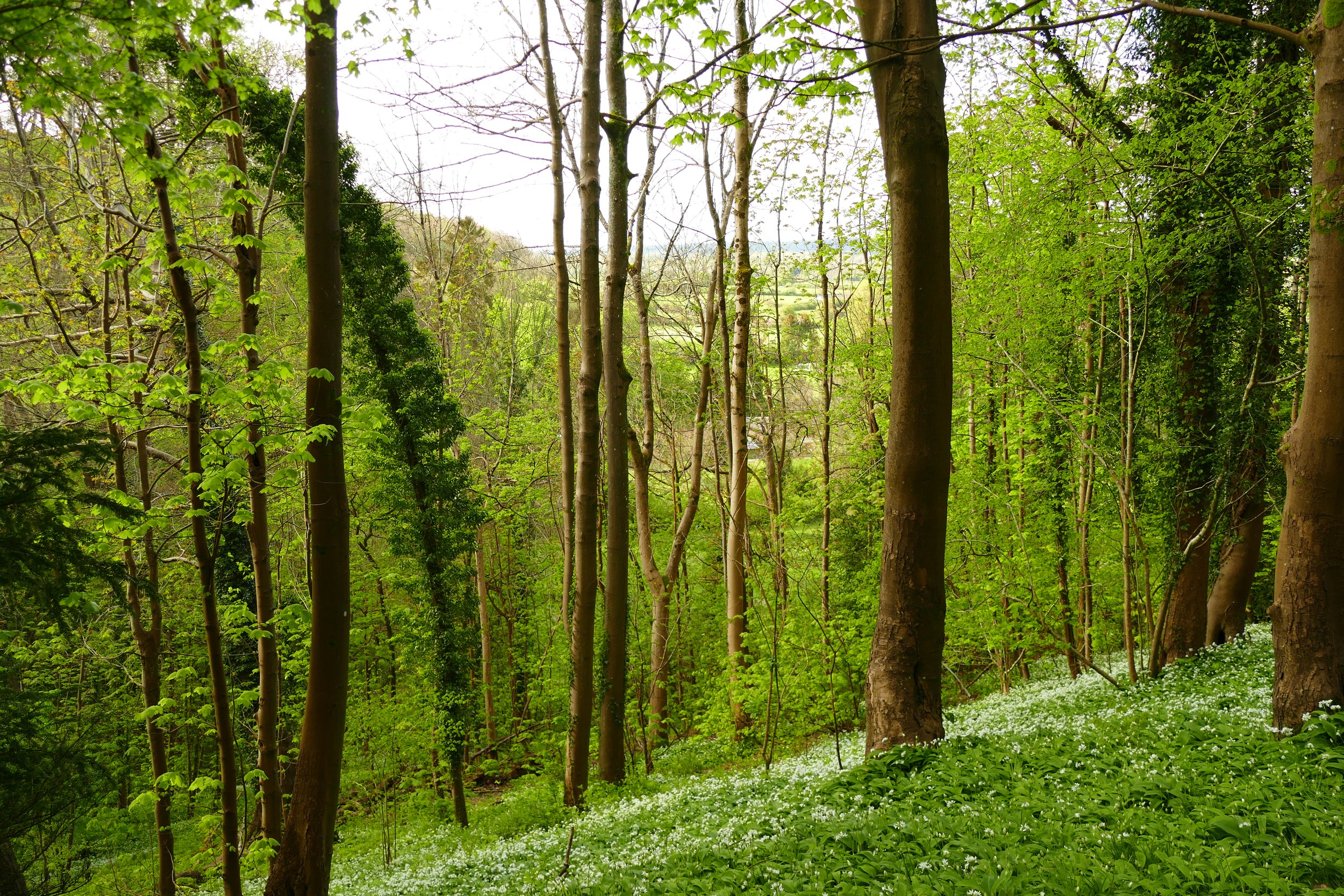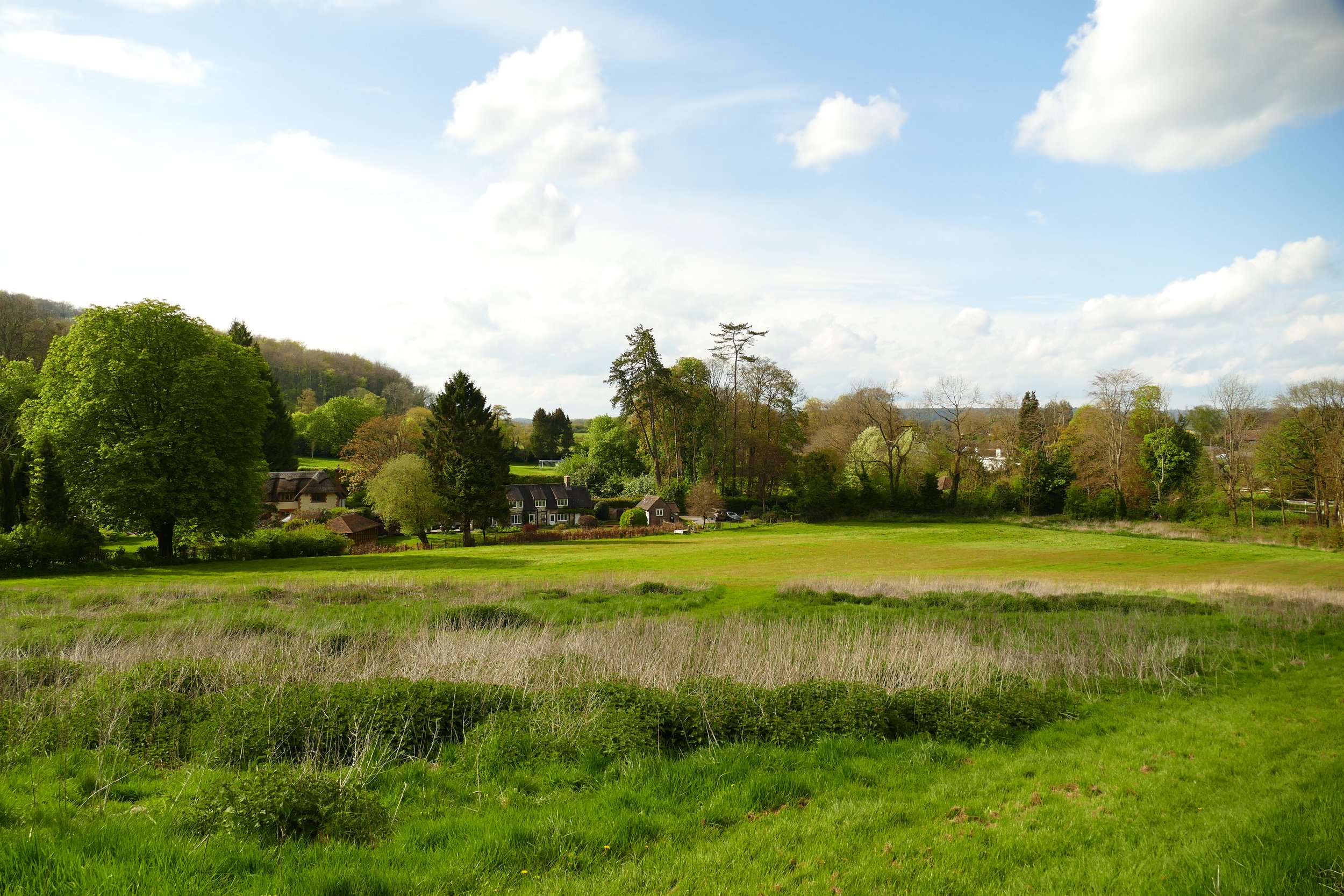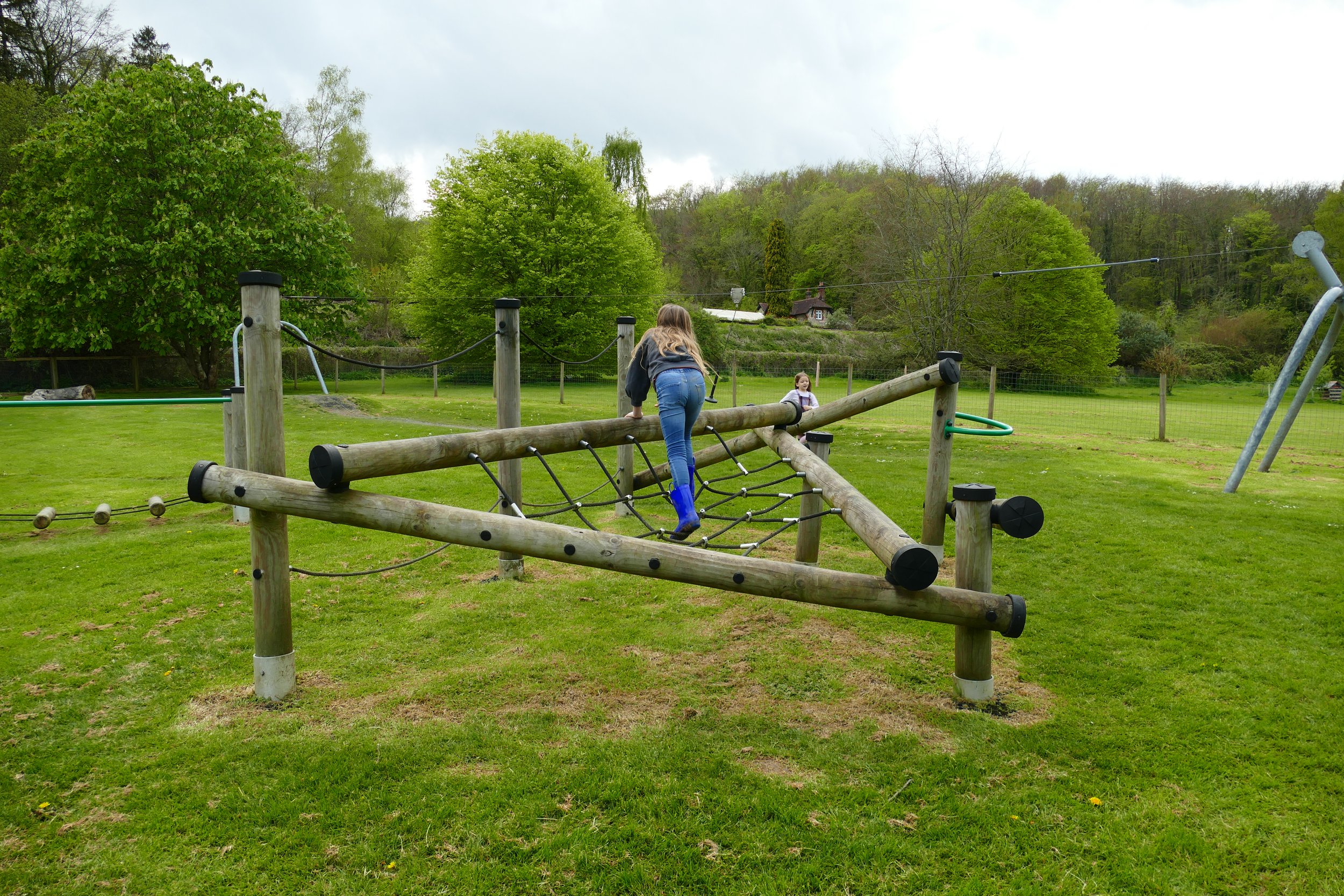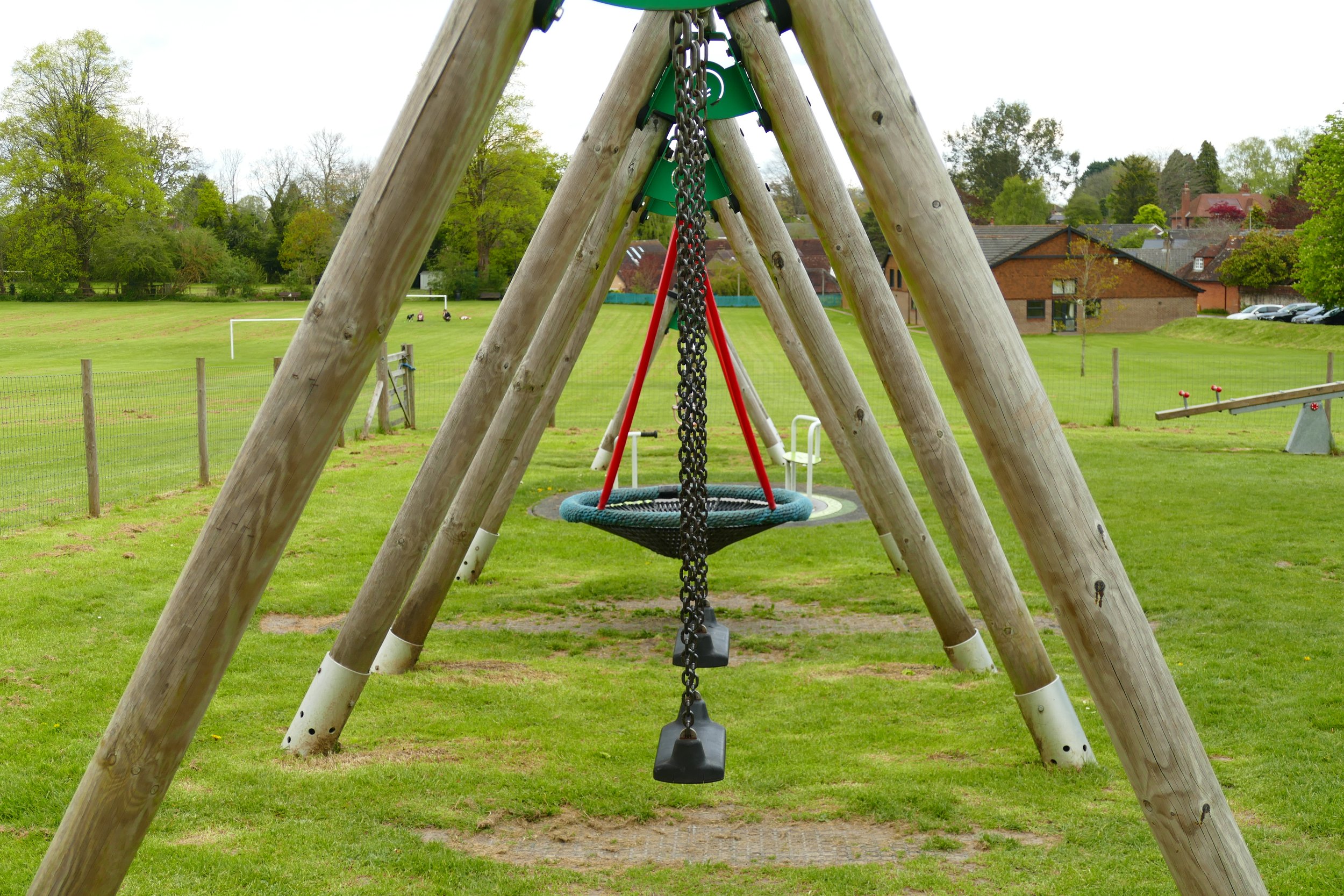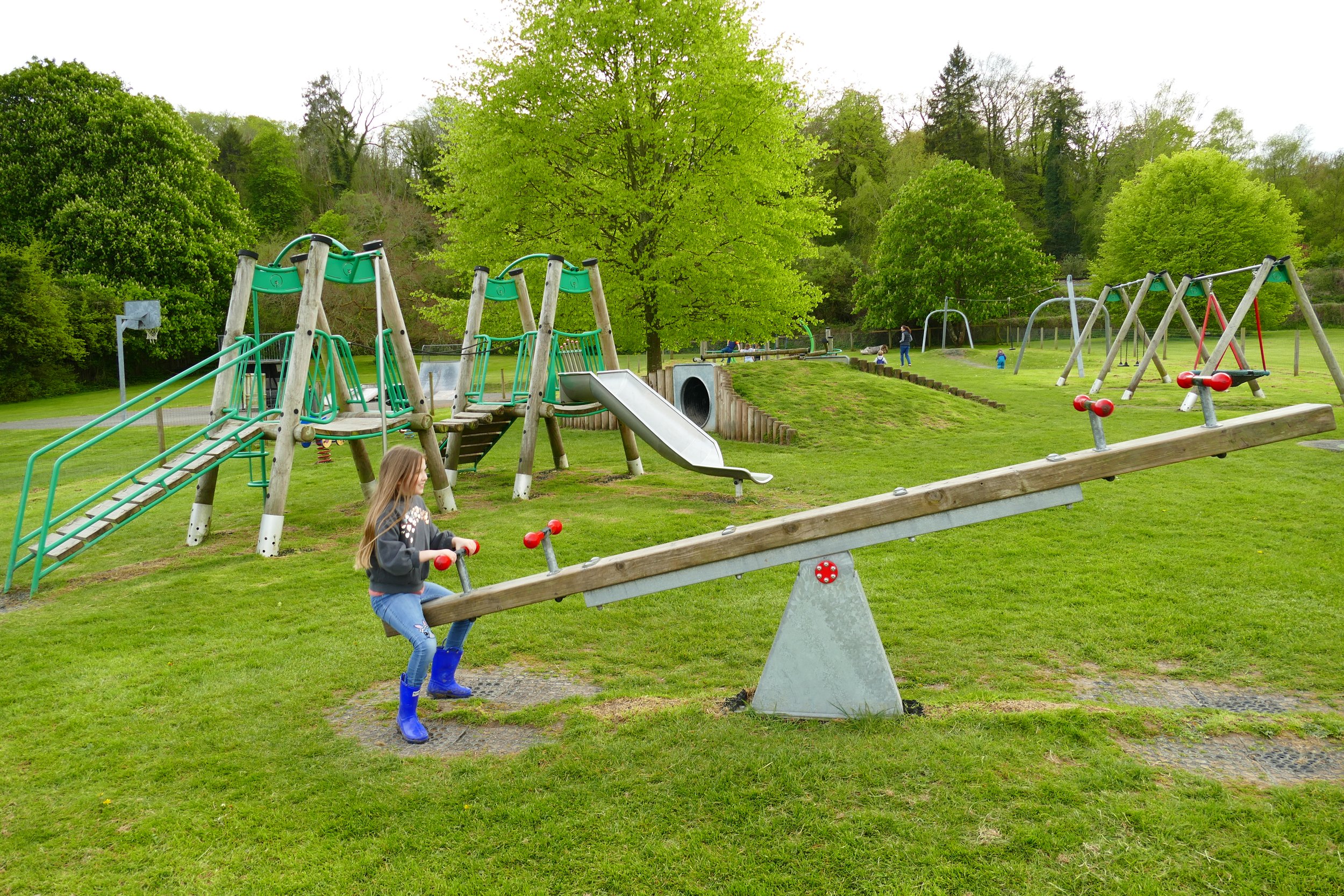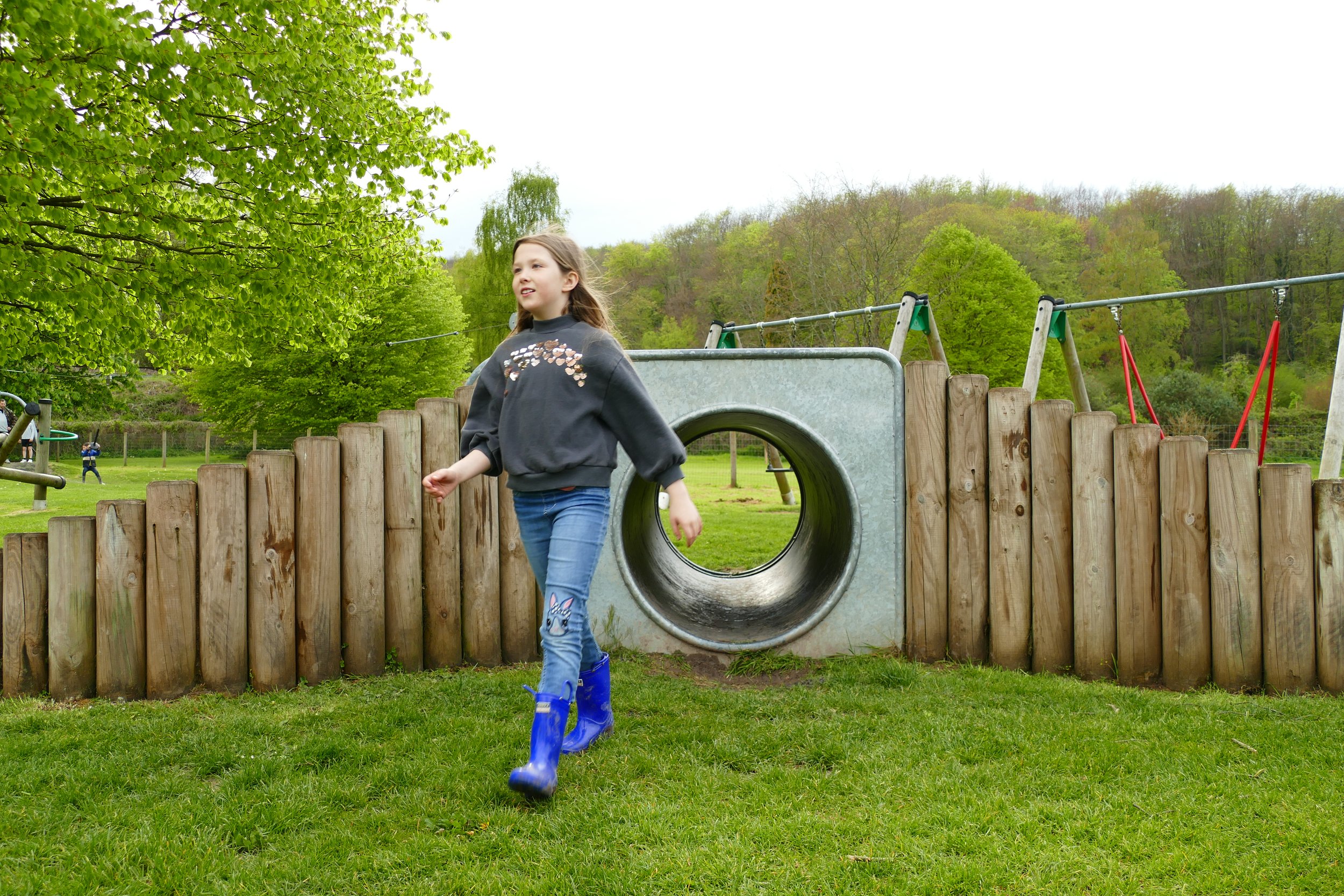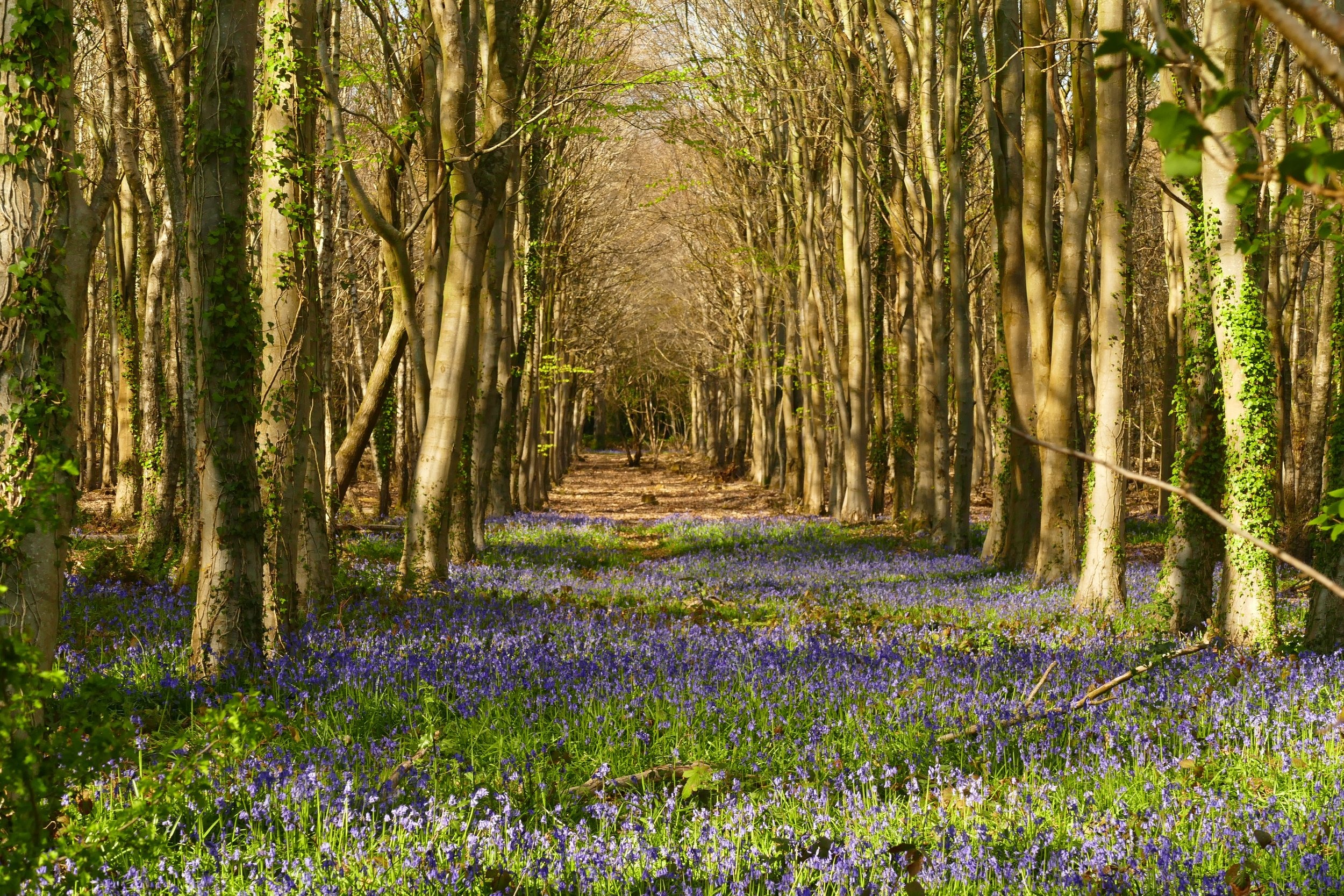Buriton
Petersfield
Children will enjoy the duck pond as well as an excellent village play area on this walk.
St. Mary’s Church, Buriton, stands in a picturesque setting beside the village pond
The Basics
Time: 45 mins
Distance: 1.8 km
Terrain: Woodland paths, tarmac lane, a couple of steep sections, downhill can be slippery after rainfall
Pushchair: No
Dogs: Yes - but not in the fenced play area at the park
Refreshments: Buriton has two family friendly pubs, The Nest and The Five Bells
Toilets: None
Public Transport: AMK bus service 94 between Buriton and Petersfield stops at the pond on weekdays
Parking: Car park beside the pond in front of the church - free, or alternatively more parking can be found at the village hall/recreation ground (Postcode: GU31 5RT - W3W: segments/slings/paddocks)
Buriton Pond
Buriton has long been one of our favourite villages to take a Sunday afternoon stroll around. The girls love to feed the ducks and the well equipped park is one of their favourites and is the kind of place you would want to spend an afternoon with a picnic. This walk leaves the village pond and heads up through woodland via the old chalk pits.
The Route
After feeding the ducks and enjoying the pond, begin the walk by walking down South Lane on the opposite side of the pond to the church, with the water to your left and The Old Rectory to your right. This will take you past some pretty thatched cottages and under the railway bridge. The train tracks are often in sight on this walk, making it a good choice for children who are train enthusiasts.
After going under the bridge, fork right and head up the hill through the woodland. Ignore all paths to the left but do look out at the start of one of them for an old wagon that would have been used to cart the chalk down from the pits. Just after this, you can make the choice to continue straight up the hill or take the little path on your right down some steps. This path winds its way up through the trees, and in our opinion, makes a pettier route up. Both paths will meet again at a little carved bench with wooden animals on. Opposite this, there is a gate which you should go around and follow the path beyond it.
The path will take you up to meet another path, where you should turn left. The road will be down to your right and a fence to your left. Look out for a house on the opposite side of the road which sometimes has cakes for sale on a stand at the bottom of its drive. Continue with the fence to your left (which is falling in places) until you get to the end of the fence and the point where the chalk pit walk markers direct you left down the hill. You can return this way if you wish, but we prefer to continue and return to the village another way as it offers a more scenic descent and passes wild garlic flowering in spring.
For our route, turn right where the fence ends, with a short scramble up to join the lane. Turn left and walk along the lane where you will very shortly see a footpath post pointing you back down the hill into the woodland. Bear right and walk along the side of the hill with a yew tree grove coming into sight on your left. The path will then widen as it then veers left and down a steep hill (currently - April 2024 - there is a fallen tree here you will need to duck under) . As you go down, you will see the railway tracks down to your left, and as the trees come to an end, a gate will take you down a path between two fields . The church will be ahead of you.
The play area is a hundred metres or so up the high street from the pond. Look out for a footpath sign on your left signed to the village hall going tightly between houses. The park is just beyond the village hall. Although it may not look like it, you can also drive up here and park in the car park if the church car park is full.
There are two pubs, one opposite and one just beyond the village school. The Nest welcomes dogs on their terrace and also serves pre-booked afternoon teas. The Five Bells has a garden and welcomes well behaved dogs - and children!
Did you know?
Chalk was quarried from the Buriton pits up until the second world war and you can still see both the pits and heaps of spoil. Some of the paths you will walk on were once the narrow gauge railway lines used to transport the calk and lime. One of the carts has been left for walkers to view.
We are passionate about keeping The Ambling Path as a free resource available to everyone, forever. If you have enjoyed using our walking guides, then please consider leaving us a donation. This will help to cover our costs as well as rewarding the considerable time and effort needed to maintain the site. Thank you.


